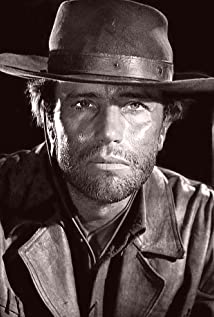Anthony Steffen
Born in Rome, on 21st July of 1930, at the Brazilian embassy, son of Formula 1 champion and then ambassador Manoel de Teffe; he was named Antonio Luiz and became the Baron de Teffe. The de Teffe family had a noble origin but during Second World War, teenage Antonio left home to join the partisans against the Nazis.
His life in the film business started as studio messenger for Vittorio De Sica who was then directing Bicycle Thieves (1948) and years later Antonio starred in the critically acclaimed Gli sbandati (1955). Then he went into typical examples of popular Italian films of the late 50s such as sword and sandal epics, comedies, adventures and even great American movies like Robert Aldrich's Sodom and Gomorrah (1962), but it was with Spaghetti Westerns that renamed Anthony Steffen achieved worldwide stardom. His acting is often accused of being wooden, but in many ways is ideally suited to playing the steely-faced gunslinger synonymous with the gender. Steffen's most memorable role was in Django the Bastard (1969), which he also co-wrote, playing a phantom gunslinger returned from the grave to avenge his own death. This is the uncredited inspiration for Clint Eastwood's High Plains Drifter (1973).
His others successes include well liked features as Seven Dollars to Kill (1966), A Train for Durango (1968) (with Mark Damon), Killer Kid (1967) and many others. He was still enjoyable in other genres, especially thrillers as the successful The Night Evelyn Came Out of the Grave (1971), Al tropico del cancro (1972) or The Crimes of the Black Cat (1972), a good example of a giallo where he played a blind pianist - one of his roles he most liked, and Killer Fish (1979), with James Franciscus and Lee Majors. Steffen was a very reliable leading man and supporting actor and was among the elite of European cinema such as Federico Fellini, Sergio Leone, Riccardo Freda, Mario Bava, Lucio Fulci, Luchino Visconti, Antonio Margheriti, Ennio Morricone, Roger Vadim, Carlo Ponti, Sophia Loren and many others.
Elegant, educated and handsome, fluent in English, French, Portuguese, Spanish and Italian, Steffen lived in international jet-set, but in the early 80s he moved to Rio de Janeiro, Brazil, place he just adored, occasionally visiting his beloved Rome. Since 2002 he had been fighting a dreadful cancer. He died on July 5, 2004, in Rio de Janeiro. He left three sons: Manuel de Teffe, Luiz and Chiara. Besides De Sica's Shoeshine (1946), his favorite film was John Ford's My Darling Clementine (1946). Good taste until the end.

